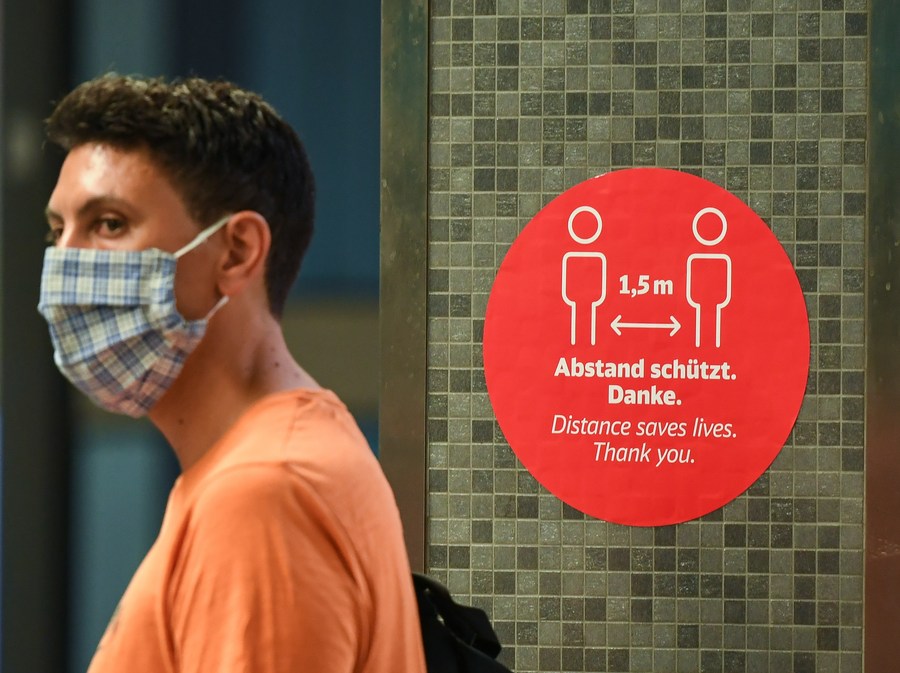
A passenger wearing a face mask walks past a sign reminding people to keep social distancing at the international airport in Frankfurt, Germany, on Aug. 19, 2020. (Xinhua/Lu Yang)
A study found that almost 40 percent of participants with a positive COVID-19 test result did not have antibodies.
However, "this does not necessarily mean that immunity does not exist," the RKI, the federal agency for disease control and prevention, noted.
BERLIN, Aug. 25 -- A German study on COVID-19, the disease caused by the novel coronavirus, has found that six percent of citizens in a former hotspot in the federal state of Bavaria had antibodies to the coronavirus and had thus already been infected, the Robert Koch Institute (RKI) said on Tuesday.
According to the RKI study, 14.5 percent of people with positive antibody test results were asymptomatic, while all others showed at least one of the symptoms, such as fever, shortage of breath or pneumonia.
The study, conducted among 2,153 adults in the town of Bad Feilnbach, also found that almost 40 percent of participants with a positive COVID-19 test result did not have antibodies. However, "this does not necessarily mean that immunity does not exist," the RKI, the federal agency for disease control and prevention, noted.













